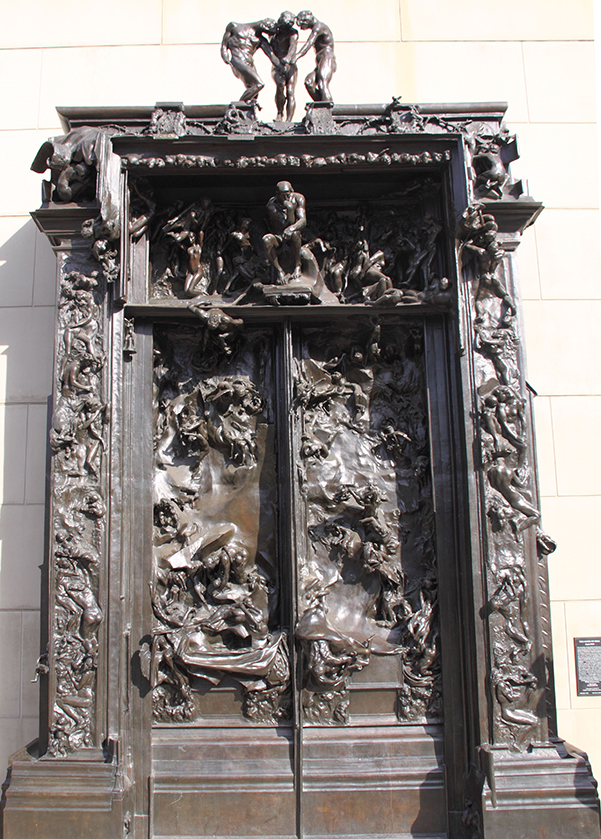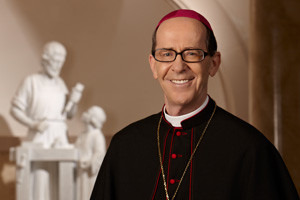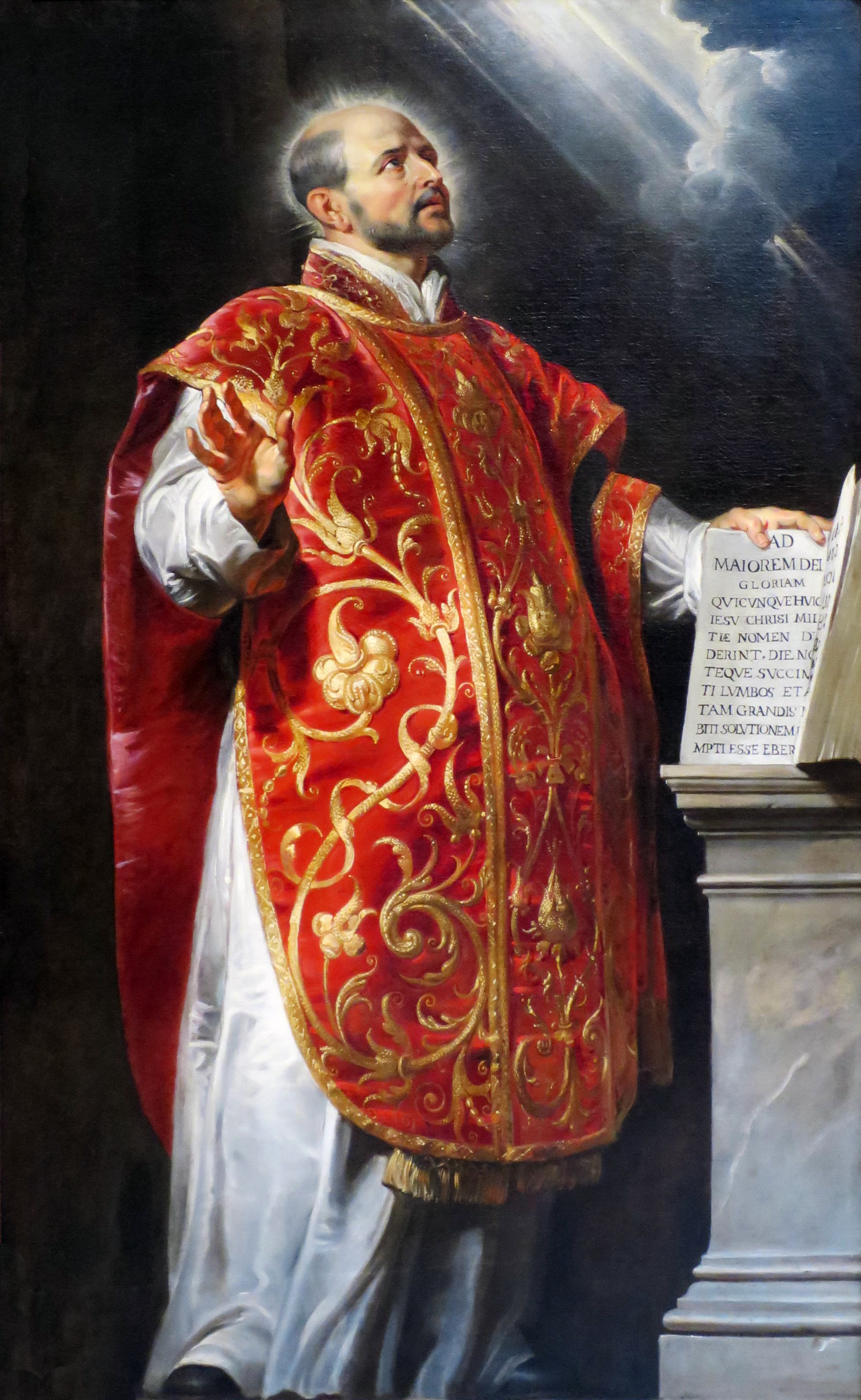Four Last Things: Part Two — Hell

Hell is one of the least popular of all Christian doctrines. Many people have trouble reconciling the existence of hell with the truth that God is all good and all loving. Due to this difficulty, some conjecture that hell does not exist, or that if it does exist, no one really goes there. After all, how can a Good God send anyone to hell?
God’s Love and Human Freedom
God does not send anyone to hell. In fact, God’s word teaches that “God … wills everyone to be saved” (1 Tim 2:4). God our loving Father wants all His children to live with Him forever in heaven. That is why He sent His Son into the world not to condemn it, “but that the world might be saved through Him” (Jn 3:17).
However, God also endowed His children with the gift of free will, knowing that some would use this freedom not for good but for evil. He gave us this freedom so that we would have the capacity to love and the capacity to choose Him. Without this freedom, we would be robots, not human beings. The unfortunate consequence of freedom is that some people choose to reject God and live on their own terms.

To help us to understand this dynamic, Jesus told the Parable of the Prodigal Son and his elder brother. In the parable, the father is so overjoyed at the return of his younger son that he throws a great party. The elder son, when returning from the field, hears music and dancing and the news that the fattened calf has been slaughtered. When he discovers that the reason for the feast is his prodigal brother’s return, he becomes angry and refuses to enter the house. The father, who loves both his sons unreservedly, comes out and pleads with his elder son to come in and join the banquet. When the son voices his anger and jealousy, the father tries earnestly to draw him in, saying, “My son, you are here with me always; everything I have is yours. But now we must celebrate and rejoice, because your brother was dead and has come to life again; he was lost and has been found” (Lk 15:31-32).
God is like the father in this parable. He continually seeks us out and deeply desires that we join him in the eternal banquet of heaven. However, many of His children refuse to come (see Mt 22:1-14). Like the elder son, they choose to remain in isolation, sulking and alone, even though the party is open to them. It is not that God sends them into this isolation — in fact, it is just the opposite: even though God thirsts for our communion with Him, some choose to exclude themselves. Such people have chosen the prison of self-made aloneness rather than the joy of communion with God. In the words of C.S. Lewis, “the gates of hell are locked on the inside” (“The Problem of Pain”).
EN ESPAÑOL: ‘Las puertas del infierno están cerradas por dentro’, Primera sección
Hell is Eternal Separation from God

While Jesus spoke often of God’s love and mercy, He frequently warned His followers about the reality of hell. Therefore, God’s perfect love and the existence of hell are somehow harmonious. Christ described hell as an “unquenchable fire” (cf. Mk 9:48) and a “fiery furnace, where there will be wailing and grinding of teeth” (Mt 13:50). He warned that we should be “afraid of the one who can destroy both soul and body in Gehenna” (Mt 10:28). It is of eternal importance that we take to heart these words of Jesus spoken in love. We believe in hell, not only because it makes sense, but because Jesus taught us about it.

Over the centuries, many further images of hell have emerged. For example, in “The Spiritual Exercises,” St. Ignatius of Loyola has a famous meditation on hell. He has the retreatant “see in imagination the vast fires, and the souls enclosed, as it were, in bodies of fire.” He has them “hear the wailing, the howling, cries, and blasphemies against Christ our Lord and against His saints;” he encourages them to use “the sense of smell to perceive the smoke, the sulphur, the filth, and corruption,” to “taste the bitterness of tears, sadness, and remorse of conscience,” and finally, “with the sense of touch to feel the flames which envelope and burn the souls” (“Fifth Exercise: It is a meditation on hell” 66-70). It should be noted that this meditation occurs only after a person is firmly rooted in God’s love for him or her; and it is for the purpose of helping the retreatant to firmly choose the Kingdom of Christ rather than the kingdom of darkness. Through this meditation, the retreatant comes to the deep conviction with regards to hell, “I never, ever want to go there — I don’t want to be in isolation from God.” This conviction then affects the choices the person makes in daily life.
These images of hell are frightening, but they simply point to the hard reality that while heaven is eternal communion with God, hell is eternal separation from Him. As the “Catechism of the Catholic Church” puts it, “To die in mortal sin without repenting and accepting God’s merciful love means remaining separated from him for ever by our own free choice. This state of definitive self-exclusion from communion with God and the blessed is called ‘hell’” (CCC 1033).
The Church thus encourages us to heed Christ’s call to conversion. As the Catechism teaches, “The affirmations of Sacred Scripture and the teachings of the Church on the subject of hell are a call to the responsibility incumbent upon man to make use of his freedom in view of his eternal destiny. They are at the same time an urgent call to conversion: ‘Enter by the narrow gate; for the gate is wide and the way is easy, that leads to destruction, and those who enter by it are many. For the gate is narrow and the way is hard, that leads to life, and those who find it are few’” (CCC 1036, cf. Mt 7:13-14).
Next month, we shall continue to explore the Christian doctrine of hell, addressing a troubling question which many followers of Christ face, namely: “What if a loved one doesn’t make it to heaven?” and then looking at the need to trust always in the mercy of God.






